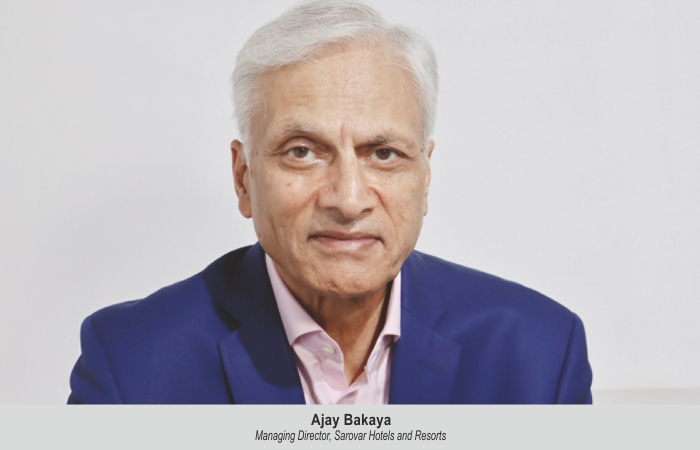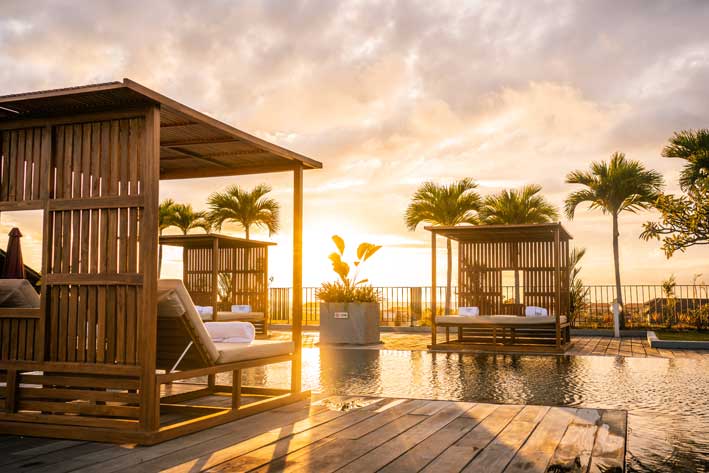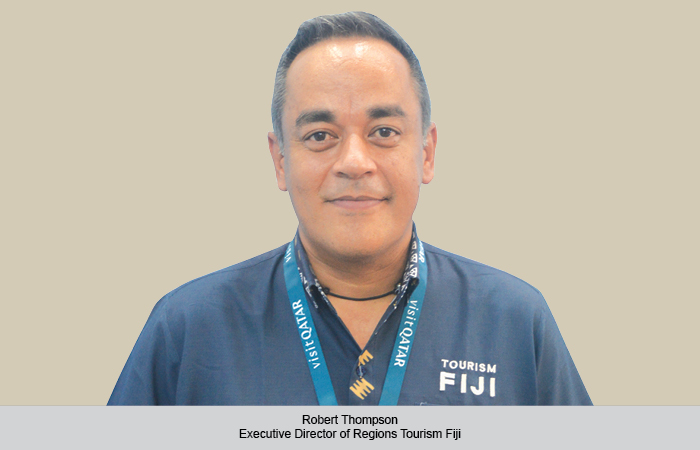Sarovar Hotels and Resorts has partnered with Louvre Hotel Group to expand their business. ‘We are taking our expansion to the next level by introducing the Louvre brands of Golden Tulip, Royal Tulip, Tulip Inn, and Campanile, in addition to our existing Sarovar brands,’ says Ajay Bakaya, Managing Director, Sarovar Hotels and Resorts.
Janice Alyosius
Ajay Bakaya, Managing Director, Sarovar Hotels and Resorts, in partnership with Louvre Hotel Group, announced their expansion recently. “Sarovar is beyond Sarovar, and now we are part of a bigger picture. While we have over 100 hotels, Louvre has over 1,000 hotels. We are taking our expansion to the next level by introducing the Louvre brands of Golden Tulip, Royal Tulip, Tulip Inn, and Campanile, in addition to our existing Sarovar brands of Sarovar Premier, Sarovar Portico, and Hometel,” he said.
Louvre Hotel Group offers a diverse range of options from 1-star to 5-star hotels. The group’s portfolio boasts of many big brands such as Royal Tulip, Golden Tulip, Campanile, Tulip Residences, Kyriad, Kyriad Direct, Tulip Inn, and Première Classe. Additionally, Louvre has five popular brands within the Sarovar network that operate exclusively in India, and also feature the Hôtels & Préférence Group and Tempting Places brand. The group has also established a distribution agreement with the esteemed Barrière group.
Expansion plans
Speaking about Sarovar’s expansion plans, Bakaya said, “Our expansion will follow a two-pronged approach, and we are looking at adding around 10 hotels per year for the next five years. Our expansion plans are not limited to India but extend globally. Our plan includes the opening of two hotels in 2023, one in Kampala, Uganda, and the other in Hargeisa, Somaliland.”
Focus on tier-II, III and IV markets
Bakaya claimed that they were the first to venture into tier-II, III and IV markets, which has given them an edge over their competitors. “We have been in these markets for a long time, and we believe that this is where the larger expansion lies,” he said.
Take on Union Budget
Speaking of the Union Budget, Bakaya said, “Our response to the budget is mixed, as we are grateful for the government’s indirect benefits, such as the improved visa regime for foreign visitors and better infrastructure, including significantly improved roads, top-notch airports, and improving seaports. From an indirect infrastructure perspective, this is fantastic news. Additionally, the Finance Minister’s announcement of 50 new destinations with all necessary infrastructure and linkages is a significant boost to the hotel and hospitality industry. However, we are disappointed that we did not receive infrastructure status.”
Investment in technology
In recent years, the travel and hospitality sector has made significant investments in technology to improve operations and improve customer experiences.
On this, Bakaya said, “Over the past two to three years, we have invested a significant amount of time and money into our technology to bring all our hotels under one system. This has resulted in a centralized reservation system, which is now live and seamless, as well as a global distribution centre that directly links to a mainframe in Paris to distribute our hotels worldwide. This has made it easier for travel agents to access and book our hotels, while also providing real-time updates on room availability and pricing.”
Top priorities for travellers
Bakaya revealed that the top priorities for travellers today are value besides safety and security. “Hotels are adapting to the travellers’ needs,” he said, adding that, “I am optimistic about the future of India’s hospitality industry and believe that the next five to 10 years belong to India.”
 TravTalk India Online Magazine
TravTalk India Online Magazine





